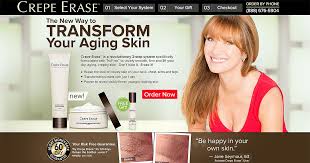"I'm late...I'm late...for a very important date.
Sometimes I feel like Alice did when she went down that rabbit hole...
We discussed life style choices in my previous blog and how
those choices may lead to an earlier or later onset menopause. It’s pretty
obvious why a woman wouldn’t want to enter menopause before her time, hoping to
keep it at bay for as long as possible, but later onset menopause is nothing to
strive for. When I started on this journey last year, all I could think about
what how to stop the train, get off, and relax a while where I was.
No such luck.
In the research article I mentioned in the last blog from
the Institute of Cancer Research in the UK, the researchers make a good case
for the problems associated with going through menopause at a later time,
especially in the increased risks to breast and ovarian cancer. These are
called menopausal risk factors and they are serious health concerns.
Prolonged estrogen exposure, coupled with menstruation
starting at an early age, say before 12, can add to a woman’s risk of ovarian cancer. If a woman has a
genetic predisposition to ovarian cancer through female lines, the risk is even
higher.
Breast density,
an independent breast cancer risk factor, is related to higher and prolonged
estrogen levels as well. Women with
dense breasts, who have a long menstrual history ( preteen years at onset) and
who delayed their menopause due to hormone replacement, also increase their
risk of breast cancer according to Celia Byrne, PhD of Georgetown University.
Her team examined mammograms from the Women’s Health Initiative. Women with
dense breasts were at the most risk for breast cancer. The density of your
breasts seems to drop during menopause, probably due to the decrease in
estrogen. So, the con to that statement is hypothesized as: women with highly
dense breasts and late menopause onset elevate their cancer risk. Now add
obesity to the aspects of late onset and dense breasts and the risk may
heighten even more.
Another health concern in late onset menopause is, believe
it or not, pregnancy. In the article
that mentions Dr. Bryne’s research, the National Center for Health statistics
is quoted as “In 2007, 6 out of every 10,000 live births in the US were to
women 50-54.” This statistic poses it’s own health concerns. 50 % of women who
conceive over age 42 miscarry; diabetes, pre-eclampsia, and high blood pressure
are all increased with a late pregnancy, as is choricarcinoma, a
pregnancy related cancer of the uterus. Down’s syndrome in the live births of
women who get pregnant late in life is heavily documented, as are other
congenital disorders in the babies born.
The average age of women who go through menopause in the UK
and the USA is 50-56. I started at 53, so I’m right in the middle. Now for my
risk factors: I started my period at 9. I know. What third grader has
breasts and uses sanitary pads? Ridiculous. But I was very fat and tall for my
age, so right there, it should have been expected. I have a strong breast
cancer occurrence on both maternal and paternal sides, but no genetic link in
the form of that brca gene, either 1
or 2. I had one baby at age 27, so again, right in the middle of the statistic’s
roadway. My weight has yoyo-ed for most of my adult life, so that heightens my
risks for problems. I had a hysterectomy at age 46 due to severe uterine
fibroids – another risk factor – but kept my ovaries, which are rapidly
declining and shrinking with age, even as I write this.
I’m not doomed, by any sense, but I am trying to reverse
some of the bad karma by eating better, getting a great deal more exercise, and
by doing regular monthly self breasts exams and yearly mammograms.
And, of course, I
pray all the time.



Comments
Post a Comment
Share your story!